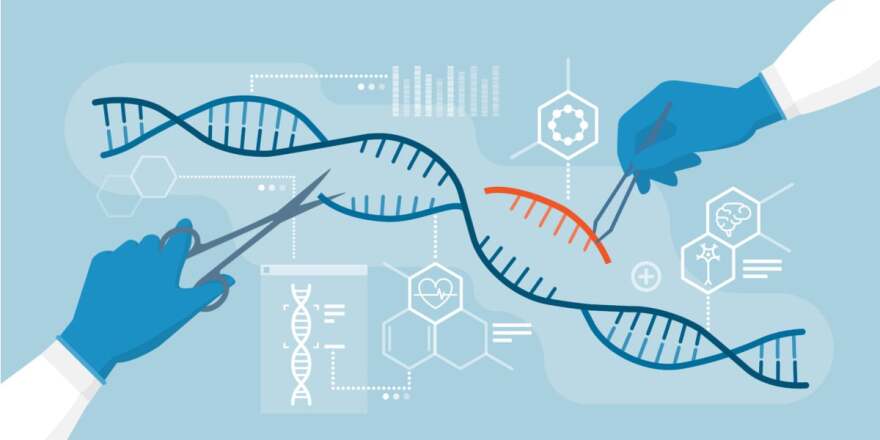The Food and Drug Administration approved Friday a gene-editing therapy that's seen success in treating Sickle cell disease. CRISPR Therapeutics saw its "Casgevy" treatment approved in the U.K. last month after seeing a successful global trial in which 28 out of 29 patients reported being free of severe pain.
The treatment is a breakthrough against SCD — which currently only has one known cure: a bone marrow transplant — and could make a difference for many lives in Florida. The Sunshine State boasts a yearly average of 7,000 new cases a year, twice that of the national average, according to a 2023 report by the Florida Agency for Health Care Administration.
"Sickle cell disease is a common genetic disorder in certain ethnicities. The African American population is number one but we are seeing a lot of other ethnicities such as Asian and patients from Iran and Iraq," said Dr. Asad Sheikh the medical director at the Orlando Heath Cancer Institute. "Florida is quite a hodgepodge of all these ethnicities."
South Florida and Central Florida lead the state's average diagnosis per year, according to the report.
SCD causes a shortage of red blood cells and a lack of hemoglobin, which grabs oxygen molecules and binds them to cells. As a result, those with SCD experience chronic pain. According to CRISPR, Casgevy uses a patient's bone marrow to edit a gene to express a type of hemoglobin.
"What Casgevy does is increase the amount of fetal hemoglobin in the body," Sheikh said.
The gene editing treatment won CRISPR the Nobel Chemistry Prize in 2020. While impactful, the treatment may not have an immediate impact in the Central Florida area and its large pool of patients, Sheihk said.
“It's going to take up to several years for the average Sickle cell patient to have access to this type of highly advanced therapy," he said.
The first limitation is the expense. Casgevy is going for a high price point of USD 1 million, according to Health Education England’s Genomics Education Programme. Other outlets have reported the treatment can cost $2 million. According to a report by the American Medical Association, 70% of patients with SCD identify themselves as disabled. Additionally, low employment rates have also been reported along with that disabled status. The report concludes these patients are likely to have lower earnings.
Additionally, a transplant center is required to administer Casgevy. Centers are few and far between with only five in the state as listed by the National Alliance of Sickle Cell Centers. Orlando Health is not listed but has a transplant center, Sheihk said, but far more will be necessary to make the treatment accessible.
"We need to create more transplant centers in Central Florida. And on top of that, we need to employ a lot of manpower for this type of gene editing therapy,” Sheikh said.
Even with the limitations Casgevy has in its accessibility, Sheikh still sees the FDA approval as a huge first step in eradicating SCD.
"With this recent approval in the U.K. I think when the FDA approves it, we're going to take it to the next level where it can be accessible to most of the patient population here in Central Florida," he said.






